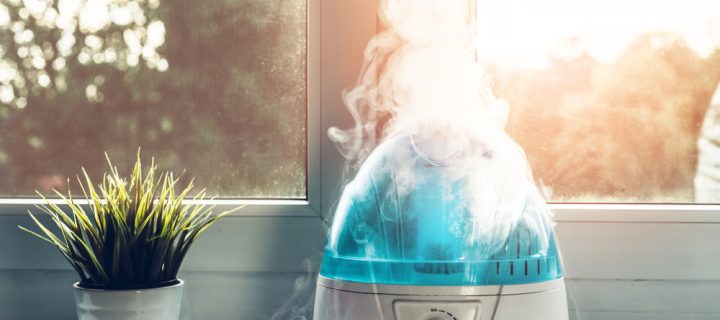A new study is showing that humidity levels can play a strong role in helping to keep infected droplets out of your air.
It’s fall and no one wishes to be playing poker outside on the deck in the cold November rain. It is easy to imagine that few of us will be hosting backyard barbecues on the patio with snow piling high upon our hats come December, and it will likely be a rare soul indeed that has the family over for Thanksgiving on the lawn. All of these are likely obvious observations. We are now moving indoors. But while this is natural as temperatures fall, the change comes at a price. The coronavirus is known to spread through the air more readily inside. How can you stay healthy?
Of course, you can start by not having people over in the first place. This is a no-brainer during the pandemic. But while social gatherings can be a main driver of COVID-19, they aren’t the only way this deadly virus is spreading. Hey, you might just as easily catch the virus at the grocery store. A trip to the pharmacy or the local drive through may actually do it. So, you practice the usual suspects. You wear a mask and wash your hands frequently. You practice social distancing. And according to a recent study, you should also do something else. Get yourself a humidifier.
Droplets Falling vs Floating
Researchers from the Leibniz Institute for Tropospheric Research (TROPOS) and the CSIR National Physical Laboratory in New Delhi analyzed ten relevant international studies conducted between 2007 and 2020. The work focused on how humidity affects the survival and spread of certain sicknesses. These included influenza, as well as SARS-CoV-1, MERS, and the virus causing COVID-19, SARS-CoV-2.
It was found that how humid the air is in an environment affects your chances of catching an illness while in it. When indoor air humidity is above 40%, infected droplets expelled by people grow larger and faster. They absorb more water. This causes the droplets to be heavier and to fall to the ground more rapidly. In this way, fewer infected aerosols or droplets emitted by infected people float around a room and are inhaled by others when humidity is higher. Viruses spread less from person to person in more humid environments.
More Than Social Distancing
Researchers say certain steps should be taken to prevent COVID-19 from spreading even more this winter. They recommend a relative indoor humidity level of 40% to 60% in places where people congregate. These include locations such as buses, workplaces, and other shared public environments. This is particularly important as we move into winter with dry, hot air being circulated indoors for heating.
Dutch researchers have shown the tiny droplets you produce when you speak can actually remain floating in the air for almost up to nine minutes. Because of this, researchers in this study say people in one room for a long period of time actually need to be further apart than previously thought, in order to effectively socially distance. Raising the humidity levels also helps.
So, go grab a unit for every room and start infusing some moisture. Your mucus membranes will feel refreshed and your health, safer.
photo credits: BOKEH STOCK/Shutterstock.com












